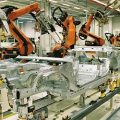在PTE中,无论是Summarise Spoken Text 还是 Re-tell Lecture的考题大都是从真实的讲座或者演讲中截取的,中间经常经常夹杂很多不同的环境音.很多同学都反映有时未必是听不懂,而是听不到. 鉴于此,墨尔本文波雅思PTE专门为大家总结了真实讲座的PTE练习音频,相比新闻音频来说,整体更加接近PTE考试的真题,内容方面,我们也会为大家提供考试中存在的近似题,最近我们会持续更新,敬请期待!
A traditional economy is an original economic system in which traditions, customs, and beliefs shape the goods and the products the society creates. Countries that use this type of economic system are often rural and farm-based. Also known as a subsistence economy, a traditional economy is defined by bartering and trading. Little surplus is produced, and if any excess goods are made, they are typically given to a ruling authority or landowner. A pure traditional economy has had no changes in how it operates (there are few of these today). Examples of traditional economies include those of the Inuit or those of the tea plantations in South India. Traditional economies are popularly conceived of as “primitive” or “undeveloped” economic systems, having tools or techniques seen as outdated. As with the notion of contemporary primitiveness and with modernity itself, the view that traditional economies are backwards is not shared by scholars in economics and anthropology
Traditional economies may be based on custom and tradition or command, with economic decisions based on customs or beliefs of the community, family, clan, or tribe.





